Browse
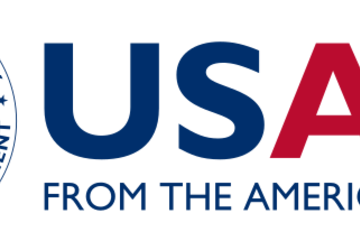
Partnerships for Enhanced Engagement in Research (PEER) 2021/2022 Solicitation
On August 23, 2021, PEER released its latest call for proposals, which aims to support research projects that focus on the impacts of COVID-19 and potential solutions that can emerge from this pandemic. The COVID-19 pandemic has led to unprecedented global challenges and uncovered weaknesses in the ability of governments, the private sector, and local and international actors to deliver services and resources across many systems. This has been true in food and agriculture, healthcare, and education, among other sectors. However, the pandemic also has inspired innovation in areas such as digital technology and social organization, and there are many examples of countries or communities effectively coordinating to confront this threat. This PEER funding opportunity looks to support locally-led research projects that (1) aid in our understanding of how shocks such as COVID-19 affect key sectors in developing countries and (2) test approaches to help communities and sectors respond to and mitigate the effects of COVID-19 or similar future shocks.Projects funded under this year’s call for applications will receive one-year awards of up to US $70,000. In addition, they will receive personalized training and guidance from USAID’s Research Technical Assistance Center on developing evidence-to-action plans and communications products. The deadline for submission of pre-proposals is October 22, 2021. For further details please review the Request for Applications.
Read more
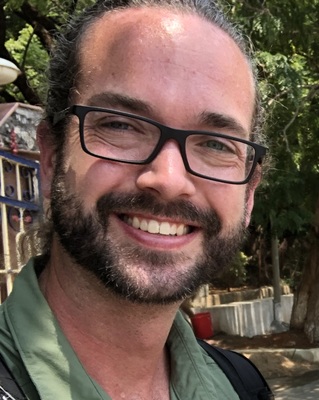
By: Derek Tobias
Due Date: Oct, 22, 2021
Health and nutrition
Leave a comment
No Preview Available
Souleymane Bachir Diagne in conversation with Wayne Modest, Aude Christel Mgba, and Ryan Skinner.
CONVERSATION | 9 Sept 2021 | 16.00-17.45 CET | Zoom online
As part of the Thinking With series, we invite Souleymane Bachir Diagne to discuss his work in conversation with Aude Christel Mgba and Ryan Skinner. In African Art as Philosophy: Senghor, Bergson and the Idea of Negritude (2011), Souleymane Bachir Diagne writes of Léopold Sédar Senghor’s lifelong project to think through “affirmation of the self [as] a natural reaction to colonial domination” (188): “Beyond affirming the aesthetic virtues revealed in pieces of art created by Africans, Senghor wished to stress the metaphysics they offered for reflection: along with the art through which it had been written, he wished to rescue a worldview, a feeling and a thinking that were also contributions to the humanism of tomorrow by African-being-in-the-world” (7-8).
“In our efforts at the Nationaal Museum van Wereldculturen to better honor and listen to the lives the ‘objects’ in our museums have led and wish to lead, we hope to better think more reciprocally in relationship to these objects and the communities invested in their being. We are compelled by Diagne’s work to think more deeply about the histories, afterlives, and temporalities in which our objects exist. How might we allow the objects to speak better from themselves, for themselves, while all the while honoring the complex positionalities of those who are enjoined to engage these objects? We understand those persons who are called upon to better honor the objects to be: those living in the places where the objects were obtained (gifted, seized, stolen); those who relate to African art from diasporic sensibilities; and those who are implicated by a colonial past as perpetrator and/or who benefit from systems of privilege, as per Michael Rothberg. Together, in Relation, and even thanks to the tensions implied by Glissantian Opacity, we hope to better be responsible to our work and engagement as professionals and visitors to our ethnographic museums.”
More about Zoom event: https://www.materialculture.nl/en/events/thinking-souleymane-bachir-diagne-african-art-phi...
Registration for Zoom event: https://us06web.zoom.us/webinar/register/WN_X6gKuBv3RVuw5FEGTCE6uw
Read more

By: Raquel Acosta
Due Date: Sep, 9, 2021
Culture and society
+1
Leave a comment
No Preview Available
Call for Abstracts: "Relations to Plants as a Heritage From Below in African Cities"
The deadline for submitting a paper for the panel "Relations to Plants as a Heritage From Below in African Cities" at the next African Studies Association of Africa (ASAA) conference, at the University of Cape Town (South Africa) from 11 to 16 April 2022, has been extended to 30 September. The submission of the paper proposal (max. 250 words) has to be done via this platform: https://2022conference.as-aa.org/submit-work/call-for-abstracts/
ASAA encourages paper presenters to reflect on the conference theme and address issues outlined in the theme description. With a massive number of abstracts submitted for presentations at ASAA conferences, the ASAA2022 Conference Committee is dedicated to guaranteeing a timely and fair review process with the international norms of double-blind peer review.
The decisions of the Scientific Committee will be communicated on 14th November 2021. ASAA early-bird registration will open on 1st November 2021. See eligibility criteria and learn about the application process in the link below!
Call for abstracts – ASAA2022 (as-aa.org)
For any queries with the above, please email: as-aa2022.org@uct.ac.za
Read more

By: Raquel Acosta
Due Date: Sep, 30, 2022
Culture and society
+1
Leave a comment
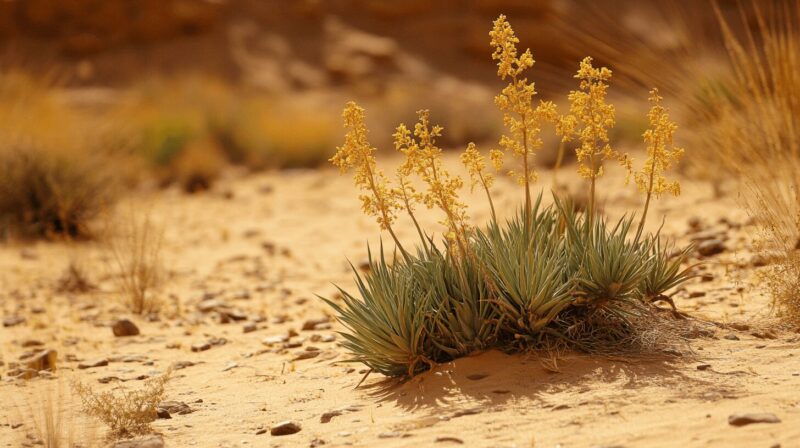
No Preview Available
Call for Manuscripts: African Journal of Rural Development
About the JournalThe African Journal of Rural Development (AFJRD) is an online open access scientific journal that publishes articles on a quarterly basis (March, June, September, December). It is a multi-disciplinary peer-reviewed journal with an ultimate purpose of sharing and increasing the depth of knowledge on aspects of sustainable rural development. The Journal welcomes submission of manuscripts that meet the general criteria of domain significance and scientific excellence. All articles published in AFJRD will be peer reviewed.
AFJRD is an open access journalOne key request to researchers across the world is unrestricted access to research publications. Open access gives a worldwide audience larger than that of any subscription-based journal and thus increases the visibility and impact of published works. It also enhances indexing, retrieval power and eliminates the need for permissions to reproduce and distribute content. AFJRD is fully committed to the Open Access Initiative and will provide free access to all articles as soon as they are published.
Call for ArticlesAFJRD welcomes the submission of manuscripts that meet the general criteria of domain significance and scientific excellence, and will publish:
Original Research articles: These should describe new and carefully confirmed findings. In addition, experimental procedures and/or approach used by the study should be given in sufficient detail for others to verify work done. The length of a full paper should be the minimum required to describe and interpret the work clearly.
Short Communications: A Short Communication is suitable for recording the results of complete small investigations or giving details of new models or hypotheses, innovative approaches and methods, techniques or apparatus.
Reviews: Submissions of reviews and perspectives covering topics of current interest are welcome and encouraged. Reviews manuscripts are also peer reviewed.
Submission of ArticlesWe invite you to submit your manuscript(s) via email directly to our editor: editor@afjrd.org for publication. Our objective is to inform authors of the decision on their manuscript (s) within a period of three months from the date of submission. Following acceptance, a paper will normally be published in the next issue. The guide to authors and other details are available on www.afjrd.org. You are required to register on the website before submitting your manuscript. In case of any queries, contact us via info@afjrd.org.
Submission Timelines:AFJRD receives manuscripts for consideration for publication throughout the year.
Read more
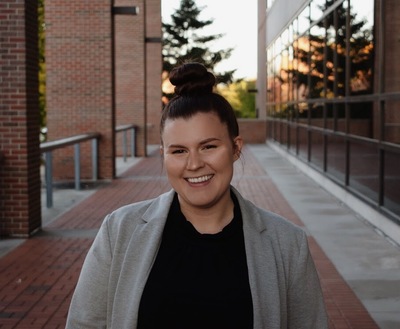
By: Madeleine Futter
Due Date: Dec, 31, 2021
Other
Leave a comment
No Preview Available
International Rising Talents- 2022 Call for application
https://www.forwomeninscience.com/challenge/show/25?utm_source=RUFORUM+Mailing+List&utm_campaign=d18db56afe-RUFORUM+Weekly+-+Vol.3+No.25_COPY_01&utm_medium=email&utm_term=0_1fcfbb8a0b-d18db56afe-346973753&ct=t()&goal=0_1fcfbb8a0b-d18db56afe-346973753&mc_cid=d18db56afe&mc_eid=d95cf18a8d
Read more

By: Madeleine Futter
Due Date: Oct, 7, 2021
Youth empowerment
+1
Leave a comment
No Preview Available
Edward O. Wilson Biodiversity Postdoctoral Fellowship
Through a generous founding gift from Edward O. Wilson, Faculty-Curator Emeritus and University Research Professor Emeritus, and with support from additional donors, the Museum of Comparative Zoology (MCZ) at Harvard University has established the E.O. Wilson Postdoctoral Fellowship Program. This program supports postdoctoral researchers at MCZ to pursue the discovery and formal taxonomic description of Earth’s animal species. Fellows will work under the supervision of one or more MCZ faculty-curators, who will provide office space, access to lab facilities and necessary research support. The program aims to achieve broad taxonomic coverage and is not restricted to any particular taxon.
Learn about the recipients of the Edward O. Wilson Biodiversity Postdoctoral Fellowship and the species described during their fellowship.
Eligibility
A Ph.D. with relevant research experience in taxonomy and/or systematics is required.
All formal requirements for the doctoral degree must be completed before the start of the fellowship, though degree receipt may be forthcoming.
The EOW fellowship program is open to both U.S. and non-U.S. citizens.
Applicants need to identify at least one faculty-curator who has agreed to supervise the fellowship.
Criteria for selection
Applications will be evaluated by a committee of Harvard faculty who will prioritize the following in the selection process:
The likelihood that the proposed work will result in the discovery and formal taxonomic description of animal species new to science.
Fully developed and well thought out research programs with significance of proposed research clearly highlighted.
The use of integrative methodologies that combine several data types in crafting solutions to taxonomic problems.
A strong academic record of taxonomic/systemics research.
Additional considerations
Preference will be given to applicants not currently affiliated with Harvard University, and to those who have received their doctoral degree within the previous three years.
In order to encourage a diversity of expertise within the MCZ, preference will be given to individuals studying taxonomic groups not currently under investigation by an active EOW Fellow (please refer to the list of active fellows).
At this time, the selection committee will not consider proposals emphasizing the taxonomy and systematics of fossil/extinct species.
Terms & Conditions
Stipend of $55,000/year
Benefits-eligible
Research and travel allowance of $4,000/year
Start date flexible, but within 12 months of extended fellowship offer
Maximum two-year appointment, with funding for year 2 contingent upon successful performance during year 1
Residence in the Cambridge area is required
Relocation allowance negotiable after fellowship awarded
Application Components
A cover letter no longer than one page.
A research proposal, no longer than four pages and single-spaced, should describe:
the nature and scope of the proposed research project;
the approach and methods to be employed;
how existing MCZ collections would be utilized and augmented with new specimens;
laboratory and equipment requirements;
the proposed MCZ faculty-curator sponsor, and
likely products (publications, etc.) to be completed by the end of the fellowship period.
Research budget: Include a simple, one-page budget that itemizes anticipated research and travel costs, not to exceed the fellowship allowance.
A curriculum vitae no longer than three pages.
Up to five pertinent publications.
Three letters of recommendation from non-Harvard scientists. Include names and contact information of the three referees with the application. The letters will be submitted separately from the application through an online system (see below). Letters are due within two weeks follwing the application deadline. The application is complete only when all three letters are received.
Interview: A subset of applicants may be asked to further discuss their proposals with the selection committee via videoconference.
Submission through Harvard Academic Recruiting Information eSystem (ARieS)
Deadline
September 30, 2021
Questions
Please email inquiries regarding the Edward O. Wilson Biodiversity Postdoctoral Fellowship
Read more

By: Madeleine Futter
Due Date: Sep, 30, 2021
Water, energy, and the...
+1
Leave a comment
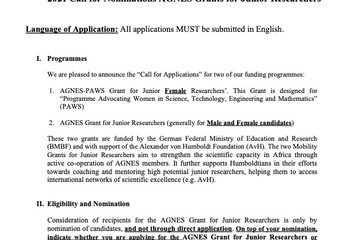
2021 Call for Nominations AGNES Grants for Junior Researchers
https://repository.ruforum.org/system/tdf/AGNES-JUNIOR-RESEARCHER-GRANT-CALL-2021.pdf?file=1&type=node&id=39369&force=&utm_source=RUFORUM+Mailing+List&utm_campaign=d18db56afe-RUFORUM+Weekly+-+Vol.3+No.25_COPY_01&utm_medium=email&utm_term=0_1fcfbb8a0b-d18db56afe-346973753&ct=t()&goal=0_1fcfbb8a0b-d18db56afe-346973753&mc_cid=d18db56afe&mc_eid=d95cf18a8d
Read more

By: Madeleine Futter
Due Date: Sep, 28, 2021
Youth empowerment
+1
Leave a comment
No Preview Available
British Ecological Society: Training & Travel Grants
Objectives
These grants help PhD students and postgraduate research assistants to meet the costs of specialist field training courses and to network and publicise their research by presenting their work at workshops and conferences.
Deadline
Our second round of funding for 2021 is now OPEN with a deadline of 17:00 (BST) Friday 10 September.
Training and Travel Grants are awarded on a first come, first serve basis, therefore once all of the funding has been allocated, we are no longer able to accept applications.
If the meeting you wish to attend is between January and the end of June, you must apply to the first round. If the meeting is after June, you should apply to the second round. (Please note that awards may take up to 2 weeks to be processed, therefore events taking place in the first two weeks of July are eligible for application within the first round).
To Apply
REGISTER ONLINE
When applications open, register/log in to our online grants system, complete your contact details, and navigate to ‘Your Applications’.
Virtual Events and Courses
Applicants can now use these grants to attend a virtual conference/course, to cover registration fees up to £250. In these circumstances, the applicant must provide proof of registration on acceptance, and meet the standard eligibility and criteria as outlined below. If you are unsure that your event meets the BES criteria, contact Siri McDonnell.
Eligibility and Conditions
All applicants are required to:
be a BES member.
have at least a B.Sc. or equivalent degree.
use an institutional email address in order to apply. Any exceptions must be discussed in advance of submission with Grants & Events Officer, Siri McDonnell for approval.
be a PhD student, postgraduate research assistant (within 3 years of completing relevant degree) or equivalent (Postdoc researchers are therefore not eligible to apply).
work or study at a university or research institution (including field centres, NGOs, museums, etc.) that provide research facilities.
work in scientific areas within our remit (the science of ecology) and of relevance to the training course or meeting they are applying to attend.
give a presentation if attending a meeting.
no retrospective claims for funding will be considered.
no applicant may receive more than two Training & Travel Grants in any five year period. There must be at least three years between grants.
There is no application deadline; instead, there are two opening dates within a 12 month period (January and July). Once funding for one round has been allocated, the round will close until the next opening date. If the meeting you wish to attend is between January and the end of June, you must apply to the first round. If the meeting is after June, you should apply to the second round. (Please note that awards may take up to 2 weeks to be processed, therefore events taking place in the first three weeks of July are eligible for the first round).
Our website will be updated when the funding for each round has been allocated.Our Training and Travel grants are awarded on a first come first serve basis; submitting an application does not guarantee funding.
If you want to attend an event/training that falls within our remit, please email our Grants & Events Officer, Siri McDonnell.
A maximum of two places per training course may be funded on a first come first serve basis. No more than two applicants from the same institution may attend the same meeting/conference.
The applicant is responsible for booking to attend the course/event/workshop and as the grants are paid in retrospect, must pay the relevant institution/organiser the required fee at the time of booking as well as all monies additional to the award amount i.e. single supplements.
Successful applicants are bound by the booking conditions of the organisation running the event, course or workshop and non-attendance on a booked course or event will result in the applicant being personally liable for the cancellation fee.
It is a condition of all of our grant schemes that applicants submit a report within three months of the end date of your award. Reports will be submitted via our online grants system.
Our Events
We offer significant student registration discount on the costs of our own events, including our symposia and majority of our Special Interest Group (SIG) events. Therefore, Travel Grants are not available for these meetings. Grants may be considered for SIG events if the meeting is taking place outside the country in which the applicant resides.
We have a limited number of grants available to attend our Annual Meeting and Symposia if you are a student, postgraduate research assistant, and a citizen of/working in a ‘low-income economy’ or ‘lower-middle-income economy’ country according to the World Bank categorization.
Annual Meeting
Deadline: Applications will open later in 2021.
We are pleased to be able to support a limited number of students/postgraduate research assistant who are a citizen of/ and working in a ‘low-income economy’ or ‘lower-middle-income economy’ country according to the World Bank categorization to attend our Annual Meeting each December. These will be awarded on a first come first serve basis. Grants of up to £1000 are available.
If you wish to apply for a Travel Grant to attend our Annual Meeting, please note the same conditions apply as the standard Training & Travel Grants (please see above). In summary you need to:
Be a student/postgraduate research assistant
Be a citizen of and working within a ‘low-income economy’ or ‘lower-middle-income economy’ country according to the World Bank categorization.
Have a talk or poster presentation accepted at the meeting
Be a member of the BES
This counts as a standard Training & Travel Grant, therefore the following applies: no applicant may receive more than two Training & Travel Grants in any five year period. There must be at least three years between grants.
Please note: applicants who are awarded a grant to cover registration fees for the Festival of Ecology 2020 will still be eligible to apply for all of BES Travel Grants in 2021, including those to our 2021 Annual Meeting.
When applications open, register/log in to our online grants system, complete your contact details, and navigate to ‘Your Applications’.
Value
Unless the applicant is self-funded, it is expected that their organisation will provide at least £150 of support towards the costs of the event.
a maximum of £250 is available to cover the cost of registration fees for virtual conferences/courses.
a maximum of £300 is available for events and courses being held in the applicants’ country of residence.
a maximum of £500 is available for events being held outside the applicants’ country of residence.
grants of up to £1,000 are available to attend our Annual Meeting if the applicant is a citizen of and working in a country that is classified as ‘low-income economy’ or ‘lower-middle-income economy’ according to the World Bank.
the grant will be paid after the event has taken place, on receipt of a brief report, certificate of attendance and any appropriate receipts.
all costs must be clearly justified within the budget section. Costs that are not justified will not be considered. Please ensure all costs are clearly calculated in GBP (British Sterling).
Learn more: https://www.britishecologicalsociety.org/funding/training-travel-grants/?utm_source=RUFORUM+Mailing+List&utm_campaign=d18db56afe-RUFORUM+Weekly+-+Vol.3+No.25_COPY_01&utm_medium=email&utm_term=0_1fcfbb8a0b-d18db56afe-346973753&ct=t()&goal=0_1fcfbb8a0b-d18db56afe-346973753&mc_cid=d18db56afe&mc_eid=d95cf18a8d
Read more

By: Madeleine Futter
Due Date: Sep, 10, 2021
Other
Leave a comment
No Preview Available
Postgraduate Training Opportunities under the RUFORUM
Graduate Teaching Assistantship Program (GTA)
During the annual meeting of Vice Chancellors/Presidents/Principals/Rectors of RUFORUM Member Universities (see links about RUFORUM flier and RUFORUM at a Glance) held on 11th November 2020, the Vice Chancellors re-affirmed their commitment to the Graduate Teaching Assistantship Program that they initiated in 2014. The objectives of the GTA are to: i) Improve the quality of higher education and increase the pool of PhD-level trained academic staff in African universities; ii) Provide opportunities for the doctoral research to contribute more directly to African development; iii) Strengthen inter- university collaboration in the field of higher education in Africa; and iv) Promote staff mobility among RUFORUM member universities, and across Africa.
Following the meeting of the Vice Chancellors on 11th November 2020, the RUFORUM Secretariat is pleased to announce the availability of training opportunities at the different Member Universities as part of the GTA arrangement. The Secretariat invites for more offers from the other member universities to train GTA candidates.
Under the GTA arrangement:
The sending universities nominate the staff to be trained and RUFORUM Secretariat helps to get them placed in receiving (host) Universities
The sending universities commit to pay for travel, health insurance, upkeep and research of their staff under training
The receiving/host universities waive the fees and associated costs, and provide accommodation for the admitted GTA Fellows
Once admission process is completed, the sending and host universities and the nominated GTA Fellow sign a Tripartite Agreement to guide the hosting and training of the Fellow
In some cases where opportunities exist, the host University may attach the GTA Fellow to the research program at the hosting university
The RUFORUM Secretariat facilitates the GTA arrangement and follows up on the GTA training
The nominations by the Vice Chancellors for the available positions should be submitted to RUFORUM Executive Secretary at secretariat@ruforum.org as soon as possible.
Learn more: https://ruforum.wordpress.com/2021/08/09/postgraduate-training-opportunities-under-the-ruforum-3/?utm_source=RUFORUM+Mailing+List&utm_campaign=d18db56afe-RUFORUM+Weekly+-+Vol.3+No.25_COPY_01&utm_medium=email&utm_term=0_1fcfbb8a0b-d18db56afe-346973753&ct=t()&goal=0_1fcfbb8a0b-d18db56afe-346973753&mc_cid=d18db56afe&mc_eid=d95cf18a8dn
Read more

By: Madeleine Futter
Due Date: Nov, 11, 2021
Education
Leave a comment

The Ibrahim Leadership Fellowships
The Ibrahim Leadership Fellowships were established in 2011 to identify and mentor the future generation of outstanding African leaders. Each year three Fellows have an opportunity to work in the executive offices of the AfDB (Abidjan), ECA (Addis Ababa) or the ITC (Geneva), with a stipend of $100,000. During their 12-month programmes, Fellows gain both technical and leadership skills, while contributing directly to research and policy design. A special feature of the programme is the opportunity to benefit from the direct mentorship of the heads of the host organisations. Fellows also become members of the Now Generation Network (NGN), through which they continue to contribute their skills and insights to building a better Africa.
More information about the opportunity can be found on Mo Ibrahim Foundation website.
Read more

By: Derek Tobias
Due Date: Oct, 15, 2021
Culture and society
+1
Leave a comment
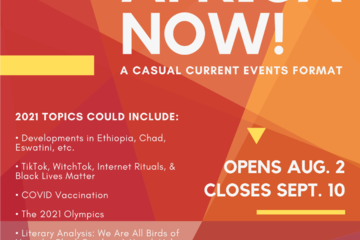
ASA 64th Annual Meeting: 2021 Call for Proposals
AfricaNow! Call for Proposals
The African Studies Association (ASA) is excited to continue our AfricaNow! format to accommodate emerging issues on our Annual Meeting program. These sessions will feature late-breaking issues that emerged subsequent to the close of the ASA CFP.
Format:Sessions can be proposed as group discussions (maximum of five presenters), individual presentations, or memorials. Please ensure that your AfricaNow! proposal meets the following criteria:• Proposals must relate directly to current events on Africa and/or African Studies.• All AfricaNow! organizers and presenters must register for the Annual Meeting when notified of acceptance.
Suggested Topics for 2021 are (but not limited to):• Developments in Ethiopia, Chad, Eswatini, South Africa, etc.• TikTok, WitchTok, Internet Rituals, & Black Lives Matter• COVID Vaccination• The 2021 Olympics• Literary Analysis: We Are All Birds of Uganda, Black Sunday: A Novel, Unbury Our Dead With Song, etc.• All 2021 Memorials
To Submit:Please prepare a (1) basic title, (2) an abstract that describes the session and confirms its timeliness, (3) the format, (4) the names and affiliations of each presenter, (5) the duration of the session, and (6) your preferred date and time. We will do our best to accommodate your preferences.
Submission GuidelinesAfricaNow! sessions will not be peer-reviewed and submissions of formal panels and papers will not be accepted in this format. The participation rules do not apply to AfricaNow! sessions. Presenters who are already on the program may submit proposals. Abstracts that were already submitted prior to the submission deadline cannot be resubmitted for AfricaNow! consideration. All requests for sessions will be reviewed by the ASA Secretariat for general appropriateness.
The AfricaNow! submission portal via OpenWater is currently open and will close September 10, 2021.
SUBMIT TO AFRICANOW! HERE.
Read more

By: Madeleine Futter
Due Date: Sep, 10, 2021
Culture and society
+1
Leave a comment

The Humanities and Arts Research Program (HARP) Development program
The Humanities and Arts Research Program (HARP) Development program provides funds to support faculty who are conducting important research leading to creative and performance projects or activities in the arts and humanities. This limited funding is designed to support faculty in the development of projects that seem likely to enhance the reputation of the faculty member and the university.
Within the Development program, there are two panels that conduct the reviews: the Humanities Research panel and the Exhibition and Performance panel. The Humanities Research panel will review applications that are supporting research projects and scholarship broadly related to the humanities. The Exhibition and Performance panel will review proposals that support scholarship and creative activities leading to an exhibit or performance. See the FAQs for clarification.
The deadline for HARP Development applications will be in early-October, with awards announced in February. Funding will be available for a two year period beginning on March 1.
What types of projects are eligible?
HARP development projects should:
produce results or a product that is likely to receive external recognition (e.g., through a publisher's interest or through available distribution or exhibition venues) or be used beyond MSU.
ultimately lead to a scholarly or creative product (e.g., book, CD, musical composition, play, artwork) with the potential for significant impact in the discipline or related areas.
Who is eligible?
Tenured and tenure-track faculty
Faculty with uninterrupted, multi-year, fixed term appointments
Faculty with one-year appointments who are able to obtain written confirmation from their department chair of pending appointment through the duration of the grant (letters from the chair should be uploaded as part of the project description)
Academic specialists in the continuing appointment system who have the majority of their effort in the research category
Part time faculty who 1) have had an appointment for two consecutive years prior to the date of their submission, 2) have a commitment from their department chair indicating that their appointment will continue through the duration of the granting period, and 3) have an appointment of at least 50% with MSU
Faculty from Arts and Letters, Communication Arts and Sciences, James Madison, Lyman Briggs, Music, Social Science, and the Residential College in the Arts and Humanities are eligible to apply for HARP funding.
NOTE: Faculty emeriti are not eligible to apply for HARP funding.
NOTE: Faculty rank and proximity to promotion and tenure decisions will not be considered in the evaluation of proposals. All applications will be evaluated on the merit of the work being proposed.
For more information or to apply, visit the MSU Research and Innovation website
Read more

By: Derek Tobias
Due Date: Oct, 7, 2021
Culture and society
+3

Leave a comment